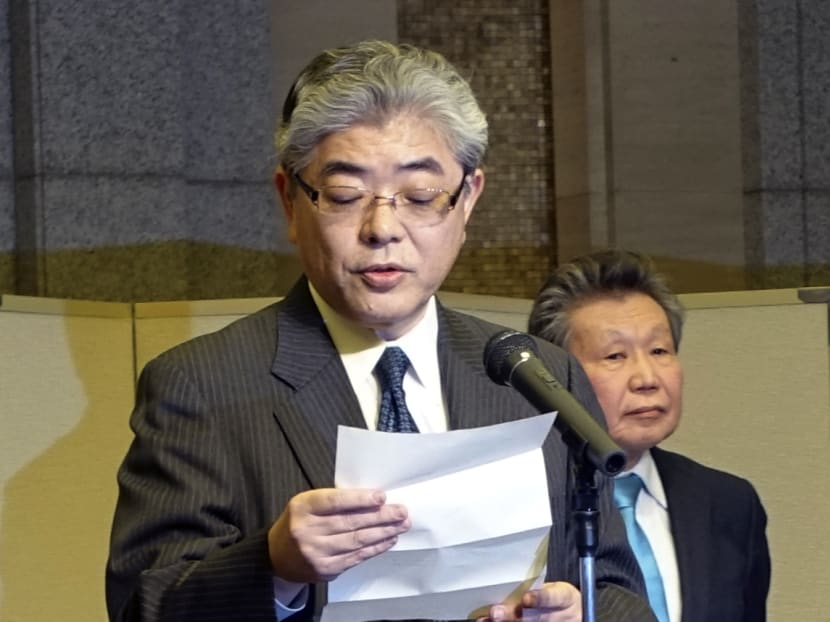Asahi not to blame for criticism of Japan: Panel
TOKYO — An independent panel said yesterday (Dec 22) there is no clear evidence that reports by the Asahi newspaper quoting fabricated witness accounts led to international criticism over Japan’s use of Asian women in wartime military brothels.

Asahi newspaper President Masataka Watanabe reads a statement after receiving a final report by a panel, led by Hideki Nakagome (right) a former prosecutor, on the newspaper's reports of war time "comfort women" during a press conference in Tokyo Dec 22, 2014. Photo: AP
TOKYO — An independent panel said yesterday (Dec 22) there is no clear evidence that reports by the Asahi newspaper quoting fabricated witness accounts led to international criticism over Japan’s use of Asian women in wartime military brothels.
The Asahi appointed the seven-member committee of experts unrelated to the newspaper, Japan’s second-largest, to investigate the reports after they were widely criticised. Prime Minister Shinzo Abe said they tarnished the country’s image.
The group examined the newspaper’s use of comments by a wartime labour official named Seiji Yoshida in a series of articles published in the 1980s and `90s.
Mr Yoshida had said he “hunted” Korean women on a southern Korean island of Jeju in 1943, forcing them to become prostitutes at Japan’s military brothels, but experts in the early 1990s reached a consensus discrediting his accounts.
In August the liberal-leaning Asahi retracted its articles based on Mr Yoshida. The newspaper eventually issued an apology, but only after coming under harsh attack from the right-wing media.
The panel, appointed after this incident, concluded the articles weren’t directly responsible for establishing the general impression that Japan coerced women from Korea, China and elsewhere as “comfort women” to provide sex for Japanese soldiers before and during World War II.
A 1993 government investigation concluded many of the women were recruited against their will, and military and government officials were often directly involved. Historians say ample wartime documents and witness accounts support that.
That government investigation found no proof in existing official documents, and conservatives have used that to deny that authorities coerced the women, and that most of them were prostitutes tagging along to make money.
They also say Mr Yoshida’s account was the root cause of wrongful accusations of forced recruitment and sexual slavery that led to Japan’s landmark 1993 apology on the matter by then-chief Cabinet spokesman Yohei Kono.
Mr Abe has long hoped to revise Kono’s apology but later promised not to do so following protests from Seoul and elsewhere. The efforts to deny coercion have soured relations with South Korea.
The Yomiuri newspaper, which has the largest circulation and leans to the right, apologised last month for calling the women “sex slaves” in some articles in its English-language newspaper.
AP






